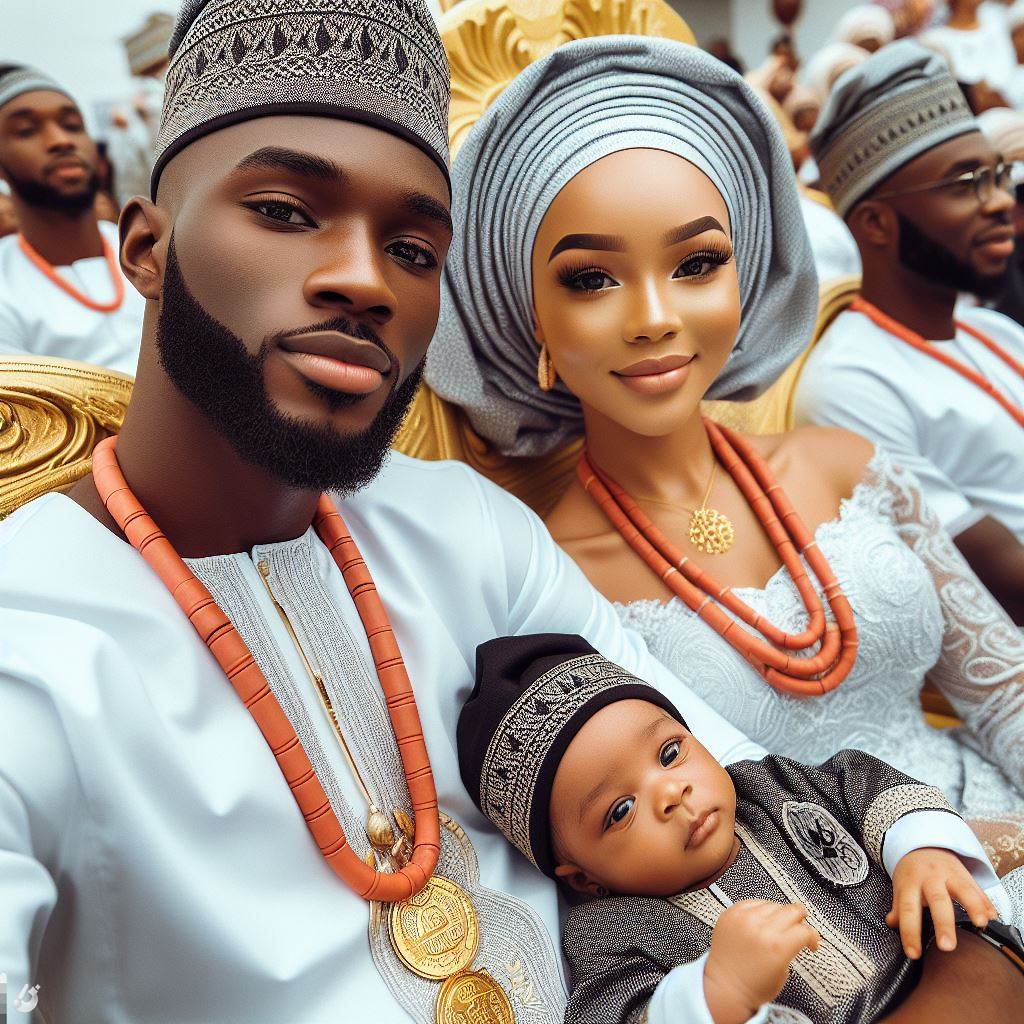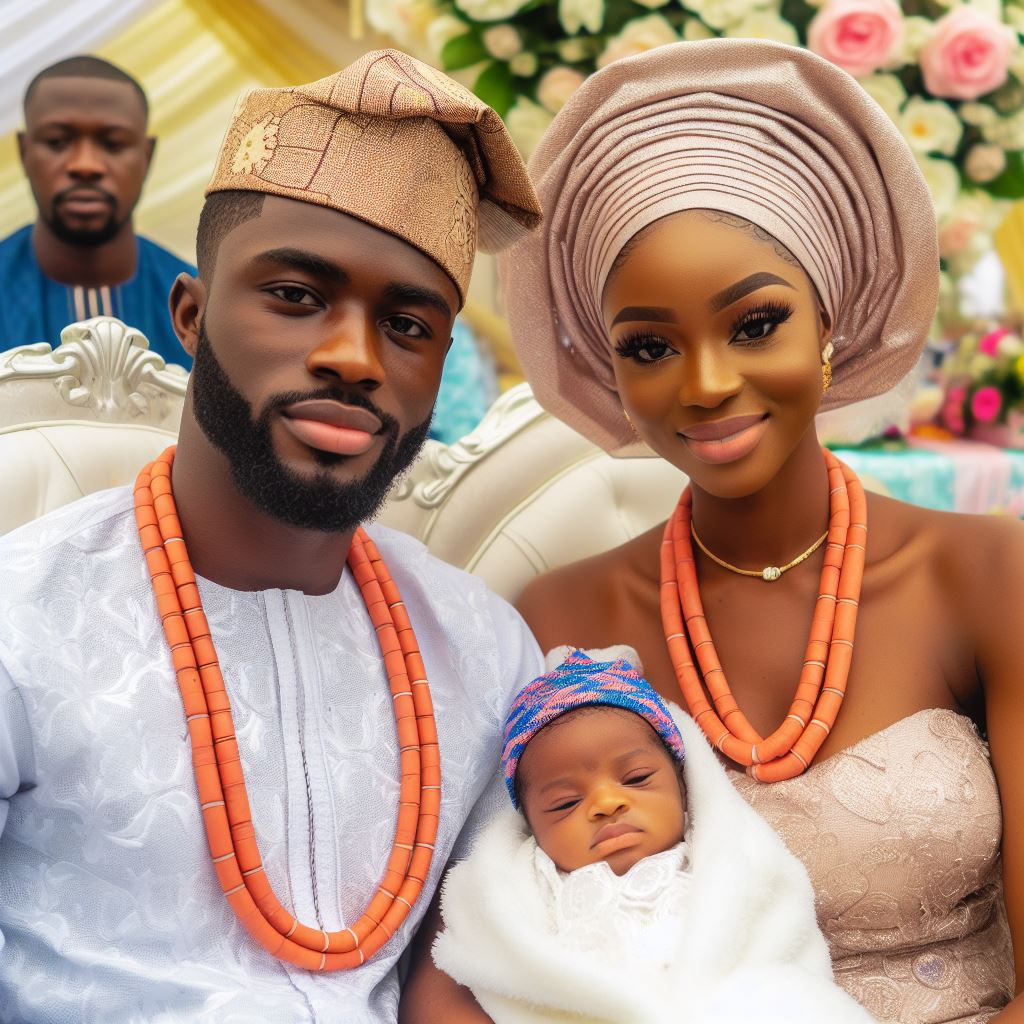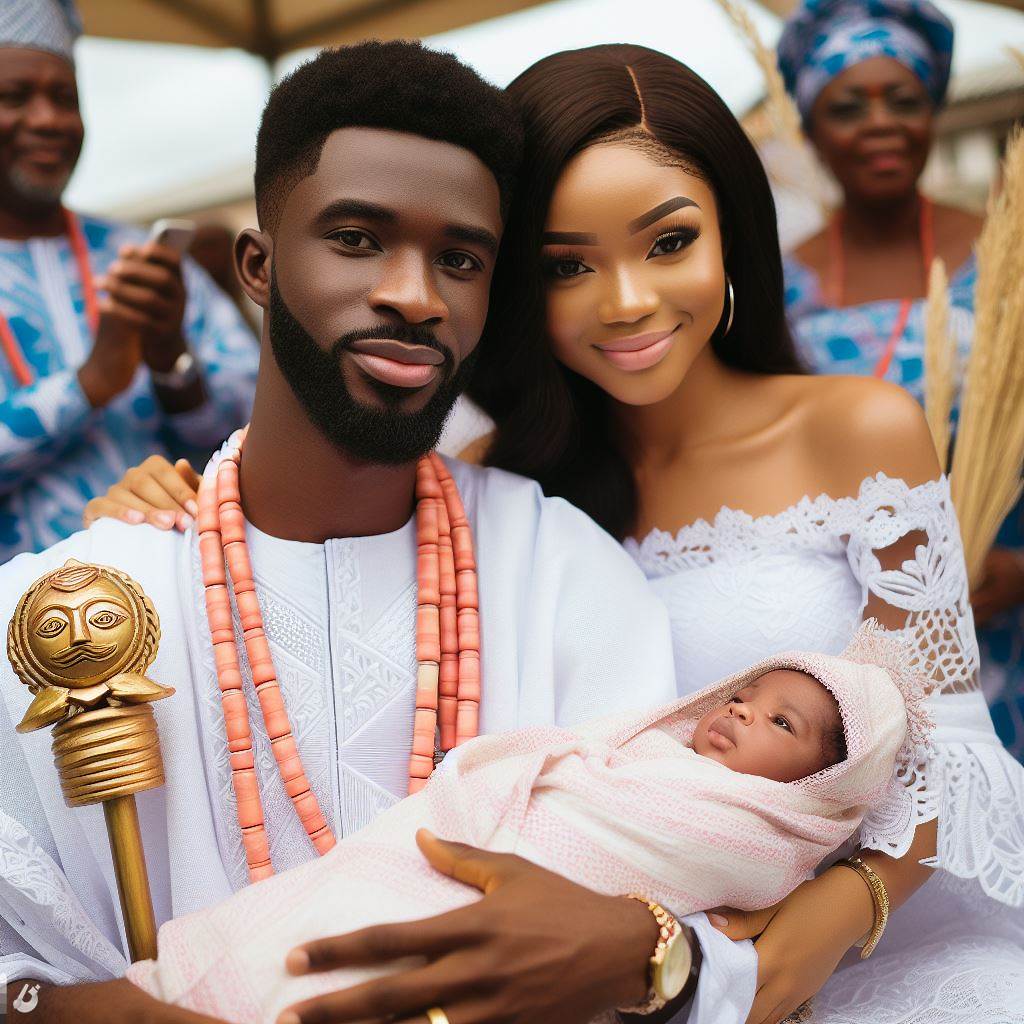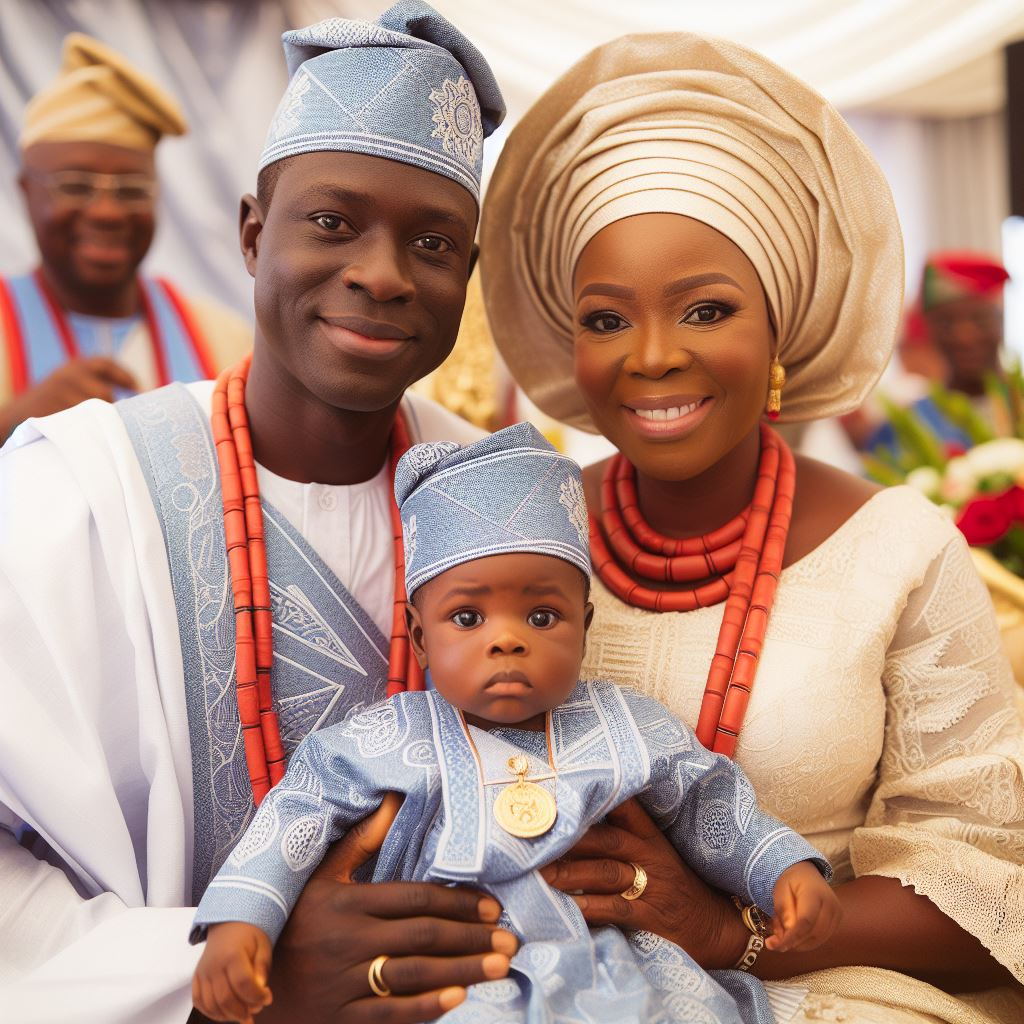Introduction
Nigerian names have deep meaning and are significant in the culture.
They reflect ancestry, religion, and beliefs. Nigerian mythology is rich and diverse, with various gods, goddesses, and mythical creatures.
These names are often inspired by these mythical figures.
Nigerian names shape destinies and identities, believed to hold profound spiritual significance influencing a person’s life.
Parents give names based on birth circumstances or qualities they wish to impart to their child.
Nigerian mythology encompasses different tribes and regions, each with its own unique stories and deities.
Yoruba mythology, for example, includes gods like Olorun, the supreme god, and Oduduwa, the progenitor of the Yoruba people.
The Igbo mythology, on the other hand, revolves around the god Chukwu, who created the world and all its inhabitants.
The Igbo people often name their children after deities to invoke their protection and blessings.
The Hausa people have their own set of mythological tales, with deities such as Maguzawa, the god of creation, and Dodo, the god of rain.
Their names often reflect their religious beliefs and cultural heritage.
In essence, Nigerian names are deeply rooted in mythology and carry spiritual meaning. They are a way to connect with the past and honor ancestral heritage.
Understanding the significance of these names is essential in appreciating and respecting Nigerian culture.
Group 1: Yoruba Mythology
Yoruba mythology
Yoruba mythology is a rich and vibrant tradition that has shaped the culture and beliefs of the Yoruba people.
The Yoruba people, an ethnic group from Nigeria, fill their mythology with gods, spirits, and mythical creatures.
Parenting Made Just for You
Get personalized Parenting Solutions tailored to your child’s needs. Transform your parenting journey with expert guidance in 1-3 days.
Get StartedThese mythological figures have names that carry deep meanings and reflect the characteristics and qualities they embody.
Names from Yoruba mythology and their meanings
Sango
One prominent figure in Yoruba mythology is Sango, the god of thunder and lightning.
Sango wields immense power, linked to fire and storms, defining him for his strength and influence.
His name signifies his ability to create chaos and destruction with a single strike.
Sango represents the untamed forces of nature and serves as a reminder of nature’s unpredictability.
Oya
Another significant character in Yoruba mythology is Oya, the goddess of wind and storms. Oya is a fierce and powerful deity who is often portrayed as a warrior.
Her name translates to “she tore” or “she ripped,” highlighting her ability to bring about sudden and dramatic changes.
Oya embodies transformation, ushering in new life after storms wreak havoc, symbolizing renewal through destruction’s aftermath.
Orunmila
Orunmila is a key figure in Yoruba mythology, known as the god of wisdom and divination.
His name means “heaven knows my suffering,” emphasizing his understanding of human struggles and his ability to provide guidance and knowledge.
Orunmila is consulted for divination and is considered the custodian of all knowledge. He brings wisdom and insight to those who seek his counsel.
Ogun
Another god from Yoruba mythology is Ogun, the god of iron and warfare.
Ogun is associated with strength, courage, and determination, and his name means “god of iron.”
He earns reverence as a mighty warrior and guardian, epitomizing perseverance and resilience in every action.
Unveil the Perfect Name that Tells Your Family's Story
Let us help you find a name that embodies your family's values, traditions, and dreams. Our personalized consultation weaves cultural insights to create a name that's uniquely yours.
Get StartedOgun is often invoked by those seeking strength and protection in times of conflict.
Yemoja
Yemoja is the goddess of the ocean and motherhood in Yoruba mythology.
Her name is derived from “Yeye omo eja,” which means “mother whose children are like fish.”
Yemoja is considered the mother of all life and is associated with fertility, nurturing, and healing. Her name reflects her role as a compassionate and loving mother figure.
Obatala
Obatala, often referred to as the creator of humankind, is an important deity in Yoruba mythology.
His name means “king of the white cloth,” representing purity and virtue.
Obatala is associated with creativity and wisdom and is believed to have shaped the physical form of humans.
He is seen as a gentle and wise god, emphasizing the importance of leading a righteous and virtuous life.
These are just a few examples of the names from Yoruba mythology and their meanings.
Each name carries a significance that reflects the qualities and attributes associated with the respective deity or mythical figure.
Yoruba mythology is a rich tapestry of stories and beliefs that continue to shape the cultural and spiritual identity of the Yoruba people.
Read: Rare and Beautiful Nigerian Baby Names
Group 2: Igbo Mythology
Explanation of Igbo mythology
Igbo mythology refers to the traditional beliefs and stories of the Igbo people, an ethnic group from Nigeria.
Generations passed down these mythological tales, shaping Igbo’s cultural and spiritual heritage for ages.
Chukwu or Chineke, revered by the Igbo, is the supreme being believed to have created the universe.
Chukwu is believed to be all-powerful and omniscient, influencing every aspect of life.
In Igbo mythology, there are numerous deities and spirits that serve as intermediaries between humans and Chukwu.
These deities represent various aspects of life, such as nature, fertility, justice, and protection.
Names from Igbo mythology and their meanings
One prominent deity in Igbo mythology is Amadioha, who is the god of thunder and lightning.
Amadioha is often depicted wielding a double-edged sword, symbolizing justice and protection.
It is believed that those who commit crimes will face the wrath of Amadioha’s thunderbolts.
Another important deity is Ala, the earth goddess. Ala is worshipped as the protector of the land, agriculture, and fertility.
The Igbo people hold rituals and ceremonies to honor Ala and seek her blessings for a prosperous harvest.
In Igbo mythology, there are also numerous mythical creatures and spirits.
Mmuo, for example, are ancestral spirits that are believed to guide and protect their living descendants.
During the yearly New Yam Festival, people honor them by making offerings and sacrifices to appease them.
Names derived from Igbo mythology hold great significance in Igbo culture.
Names derive qualities from deities, reflecting their attributes and associated spirits in many cultures.
Examples of Igbo names from mythology
Here are some examples of Igbo names from mythology and their meanings:
- Chidinma – “God is good” (derived from Chineke, the supreme being)
- Onyeka – “Who is greater than Chineke?” (reflecting the greatness of the supreme being)
- Udechukwu – “The will of God” (symbolizing the importance of divine guidance)
- Chukwuma – “God knows best” (acknowledging the wisdom and omniscience of Chukwu)
- Ngozi – “Blessing” (representing the favor bestowed upon individuals by the deities)
- Obinna – “Father’s heart” (emphasizing the love and care of the deities)
- Ifeoma – “Good thing” (signifying the positive influence of the supernatural)
- Chidi – “God exists” (affirming the presence and power of the divine)
- Amarachi – “Grace of God” (highlighting the mercy and favor of Chineke)
- Nneka – “Mother is supreme” (recognizing the importance of maternal figures in Igbo mythology)
These names are not only meaningful to the Igbo people but also serve as a way to pass down their cultural heritage and beliefs to future generations.
In fact, Igbo mythology encompasses a rich tapestry of deities, spirits, and mythical creatures that shape the beliefs and traditions of the Igbo people.
Names derived from Igbo mythology hold deep meaning and reflect the spiritual essence of this vibrant culture.
Igbo mythology’s tales cherish their cultural identity, preserving it for the future with enduring significance.
Read: Muslim Names for Babies in Nigeria: A Guide
Group 3: Hausa Mythology
Explanation of Hausa Mythology
The Hausa people, predominantly in Northern Nigeria, deeply root their culture in rich mythological stories, beliefs, and traditions.
Generations passing down these myths and legends shaped the Hausa people’s worldview and spirituality.
The Hausa people believe Allah, the supreme creator, fashioned the universe and everything within it.
However, they also have a pantheon of deities and spirits that they worship and seek guidance from in their daily lives.
Names from Hausa Mythology and their Meanings
- Dodo (the god of rain) – associated with fertility and abundance.
- Maguzawa (a fertility deity) – associated with promoting fertility and ensuring successful childbirth.
- Ubainai (the god of the sky) – associated with protection and guidance.
- Hauka (a trickster god) – associated with mischief and unpredictable behavior.
- Madugu (a spirit of healing) – associated with curing illnesses and diseases.
- Mummuyei (the goddess of love) – associated with love, beauty, and relationships.
- Sigidi (a protective deity) – associated with warding off evil spirits and protecting the community.
These names are not only significant in Hausa mythology but also reflect the values and aspirations of the Hausa people. They provide a glimpse into their belief system and their connection with the spiritual realm.
Example: Dodo (the god of rain) – associated with fertility and abundance
Dodo, the god of rain, plays a crucial role in Hausa mythology.
He holds the belief of controlling weather, bringing crucial rain for land fertility and abundance.
Rainfall supports Hausa agriculture; they revere Dodo as the one bringing life and prosperity.
The name Dodo itself carries the meaning of rain, and it symbolizes the importance of water in sustaining life.
The Hausa people understand the significance of rain in their agricultural practices and depend on it for their livelihoods.
Various rituals and ceremonies highly honor and respect the Dodo, recognizing its significance.
The Hausa people offer prayers and sacrifices to Dodo, seeking his favor and blessings.
They believe that his benevolence will bring about a bountiful harvest and ensure the well-being of the community.
The association of Dodo with fertility and abundance reflects the deep connection between the spiritual and physical aspects of life in Hausa mythology.
The belief in Dodo’s power to bring rain is not simply a superstition but a fundamental part of their worldview and understanding of the natural world.
In short, Hausa mythology has a diverse array of deities and spirits, each with their own significance and associations.
The names derived from Hausa mythology hold deep meanings and reflect the values, aspirations, and beliefs of the Hausa people.
These names provide insight into their rich cultural heritage and spiritual practices, showcasing the intricate relationship between mythology, spirituality, and daily life.
Read: Christian Baby Names with Nigerian Flair
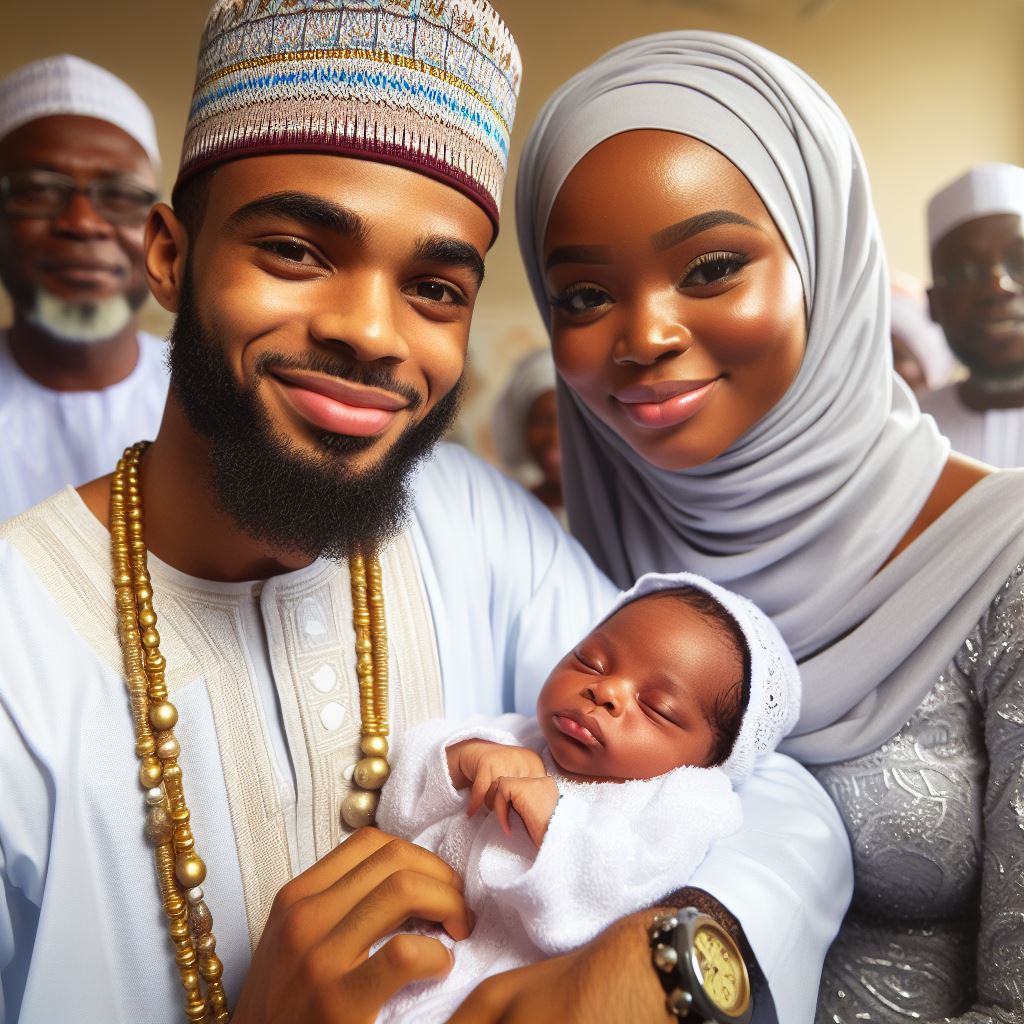
Group 4: Benin Mythology
Explanation of Benin Mythology
Benin, nestled in West Africa, deeply intertwines its culture with a rich mythology ingrained within.
The Benin people have a strong belief in the supernatural and various deities that govern different aspects of life.
Deities often embody various names, each holding unique significance and meaning in representation.
In this blog section, we will explore Benin mythology and delve into some popular names and their meanings.
Names from Benin mythology and their meanings
Benin mythology is a system of beliefs and stories that explain the origin of the world and the existence of different gods and goddesses.
It is believed that the universe was created by the supreme god, Osanobua.
Osanobua signifies divinity and higher power, reflecting the belief in a supreme being who controls everything.
One of the most revered deities in Benin mythology is Olokun, the god of the sea.
Olokun, meaning “owner of the ocean,” is worshipped for granting wealth and fertility. He provides these blessings.
The Benin people believe that Olokun brings prosperity and abundance to those who show devotion and respect.
Another important deity in Benin mythology is Esu, the god of fate and destiny.
Esu wields the ability to alter destinies and sow chaos, earning the title of the trickster god.
His name represents the unpredictable nature of life and the need to be adaptable in the face of challenges.
Example: Osanobua (the supreme god) – signifies divinity and higher power
In addition to these deities, there are also numerous other names from Benin mythology that hold significance. Here are a few examples:
- Eshu – Represents the messenger of the gods, emphasizing the importance of communication and connection.
- Osun – Symbolizes the goddess of love, beauty, and fertility. The name highlights the power of feminine energy.
- Ogun – Stands for the god of iron, war, and strength. The name signifies protection and courage in the face of adversity.
- Oduduwa – Refers to the ancestral deity and the first king of the Yoruba people. The name represents leadership and heritage.
- Oya – Represents the goddess of storms, wind, and transformation. Oya’s name signifies change and the power to adapt.
These names from Benin mythology are not just words; they carry deep meanings and reflect the values and beliefs of the Benin people.
They serve as a connection to their ancestral roots and provide a sense of identity and purpose.
In general, Benin mythology is a significant part of the cultural heritage of the Benin people.
The names derived from this mythology hold great importance and meaning. They symbolize various aspects of life, such as divinity, fate, love, and strength.
Understanding and appreciating these names gives us a glimpse into the rich and diverse world of Benin mythology.
Read: Nigerian Royal Names for Your Prince or Princess
Group 5: Other Nigerian Mythologies
Overview of other Nigerian mythologies (Nupe, Ibibio, etc.)
Nigeria, a country rich in cultural diversity, is home to various mythological traditions.
Apart from the well-known Yoruba and Igbo mythologies, there are several other Nigerian mythologies that have their unique tales and names.
In this section, we will explore some of these lesser-known mythologies and delve into the meanings behind their names.
Names from other Nigerian mythologies and their meanings
One of the lesser-known Nigerian mythologies is the Nupe mythology. The Nupe people, mainly based in central Nigeria, have a diverse set of myths and legends.
In their mythology, names carry significant meanings, reflecting their beliefs and values.
For instance, the name “Amanya” means “greatness” and signifies the importance of striving for excellence.
Moving on to the Ibibio mythology, which originates from the Ibibio people in the southeastern part of Nigeria, their myths revolve around the worship of various deities.
Ibibio names often reflect their spirituality. An example is the name “Abasiama,” which means “God’s grace” and symbolizes the divine blessings they seek.
In addition to Nupe and Ibibio mythologies, there are other Nigerian mythological traditions worth mentioning.
These include the Tiv mythology, Igala mythology, and Efik mythology, among others. Each of these mythologies has its own set of fascinating tales and names.
In Tiv mythology, names often convey a sense of strength and courage. The name “Terlumun” means “warrior” and reflects the valor and bravery admired in their culture.
Names in Igala mythology highlight power and authority, shaping a narrative rich in their significance.
The name “Ata” refers to a great ruler or king, embodying leadership qualities.
Efik mythology thrives in rich spiritual traditions and folklore, renowned for its vibrant tales and spiritual practices.
Efik names often carry deep meanings related to nature and spirituality.
The name “Esien” means “the one who takes care of animals” and signifies a person who has a special bond with the natural world.
Example: Ewuare (a legendary king in Edo mythology) – symbolizes leadership and wisdom
Nigerian names draw from revered legendary figures across regions, transcending specific mythologies. These figures remain influential.
One such example is “Ewuare,” a legendary king in Edo mythology. The name symbolizes leadership and wisdom, reflecting the qualities associated with a revered ruler.
Exploring the lesser-known Nigerian mythologies provides a broader understanding of the diverse cultural tapestry within the country.
These mythologies offer unique perspectives on spirituality, values, and the interconnectedness between humans and the divine.
In a nutshell, Nigeria’s mythological traditions go beyond the popular Yoruba and Igbo mythologies, encompassing various other fascinating narratives.
The Nupe mythology emphasizes greatness through names like “Amanya,” while the Ibibio mythology focuses on the grace of God with names like “Abasiama.”
Other mythologies, such as Tiv, Igala, and Efik, also have their own distinct names and meanings.
Exploring these mythologies provides a deeper appreciation for Nigeria’s cultural heritage and the significance of names in reflecting beliefs and values.
Conclusion
Nigerian names from mythology hold great significance in preserving and embracing Nigerian cultural heritage.
These names not only have deep meanings but also connect individuals to their ancestral roots.
It is important for parents to consider meaningful names for their children, as these names carry the weight of history and tradition.
By naming their children after mythical figures, parents can instill a sense of pride and identity in their offspring.
Furthermore, preserving and embracing Nigerian cultural heritage is essential for maintaining a rich and diverse society.
It allows for the celebration of unique identities and fosters a sense of unity among Nigerians.
Therefore, it is crucial for individuals to educate themselves and others about the importance of Nigerian names from mythology.
By doing so, we can ensure that this precious cultural heritage continues to thrive for generations to come.

